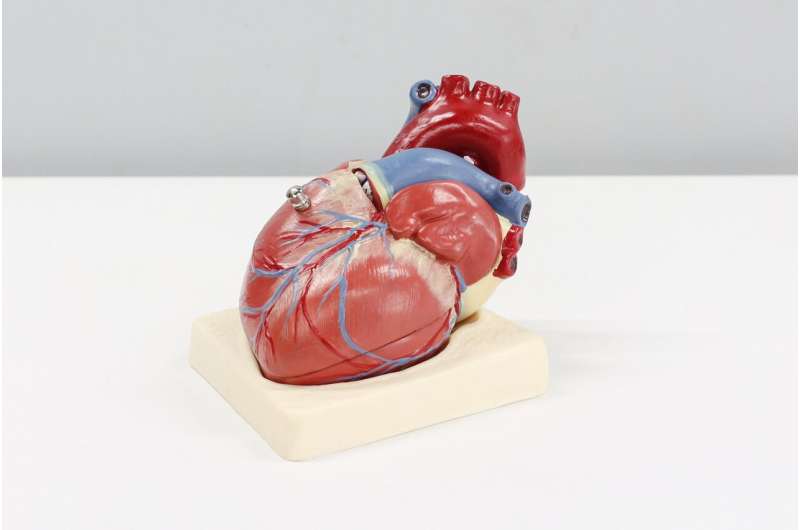This article has been reviewed according to Science X's editorial process and policies. Editors have highlighted the following attributes while ensuring the content's credibility:
fact-checked
trusted source
proofread
AI yields promising results for advancing coronary angiography

New insights from the AI-ENCODE study showed artificial intelligence (AI) successfully allowed the automated extraction of key functional and physiological data from routine angiograms. The results were presented at the Society for Cardiovascular Angiography & Interventions (SCAI) 2024 Scientific Sessions.
Coronary angiography is a widely used diagnostic procedure for identifying coronary artery disease (CAD), performed in over one million patients annually in the United States. Currently, data extracted from coronary angiograms are confined to detecting blockages in the coronary arteries.
However, AI technology has the potential to broaden the diagnostic abilities of conventional coronary angiography by expanding its diagnostic scope which can improve clinical decision-making and positively impact patient outcomes.
The AI-ENCODE study leveraged advanced machine-learning techniques to expand the range of data obtained from routine coronary angiograms.
Using a library of more than 20,000 angiograms performed at the Mayo Clinic from 2016 to 2021, the study team developed and validated multiple AI algorithms to extract data on left and right ventricular function, intracardiac filling pressures, and cardiac index from one to two angiographic videos. Echocardiograms performed close to the angiogram served as the "gold standard" for the comparison.
The AI models predicted left ventricular ejection fraction (LVEF), LV filling pressures, right ventricular dysfunction, and CI with an area under a receiver operating curve (AUC) of 0.87, 0.87, 0.80, and 0.82, respectively. These results show that novel AI models were able to extract key diagnostic data that would routinely have required additional tests such as echocardiograms and/or right heart catheterization.
"Traditional diagnostic tools in cardiovascular medicine harbor vast information, but much remains underutilized. The AI-ENCODE project proved that AI can be leveraged to unlock and deliver a broader, more meaningful spectrum of clinical findings from existing angiograms," said Mohamad Alkhouli, MD, Division Chair of Research and Innovation at Mayo Clinic School of Medicine, and lead author of the study.
"This study truly shows us AI's prowess in revealing insights beyond what the human eye can see. It is important that we leverage AI's capabilities as a diagnostic tool to provide the best possible for our patients."
The study authors look forward to further analyses of AI's capabilities in the cardiovascular space.
More information: "Artificial Intelligence for Extracting Non-Coronary Data from Angiography: The AI-ENCODE Study," Thursday, May 2, 2024; 9:45-9:52 AM PT, scai.org/scai-2024-scientific-sessions





















